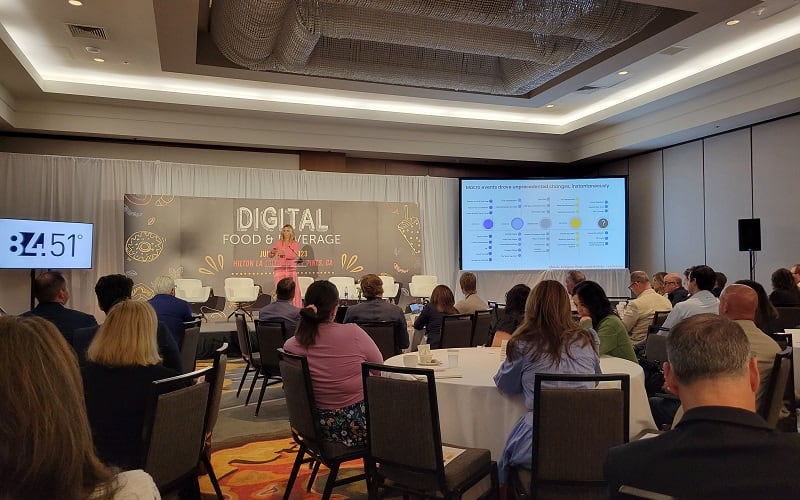"We're not [delivering] personalization at scale, and we’re under constant demand for it. But AI can potentially make that possible, [but] we're not there yet," Mohamed Al Lawati, director of digital & eCommerce at baked good company Grupo Bimbo. "We have a future state to work toward, and all we need to do is build a roadmap."
Can AI finally unlock personalization at scale?
One way CPG brands can grow their brand is through personalized digital shopping experiences. McKinsey found that personalization programs can lead to a 10-15% boost in sales conversion rates and 20% high customer satisfaction rates, while reducing marketing and sales costs by 10-20%.
To achieve widespread personalization, CPG brands can potentially use AI to crunch the data and deliver those unique experiences more quickly, explained Gireesh Shahukar, VP of digital for Dawn Foods. And generative AI tools can help create content and communications in a shorter amount of time and respond to current market conditions more quickly.
“With the emergence of AI models...you can compute large volumes of data that can help you in synthesizing from large volumes of data that was humanly not possible,” said Shahukar. “We've talked about the holy grail of one-to-one personalization: cross-channel personalization. Those are becoming real with a lot of emerging technologies that are becoming available.”
Though AI has the potential to enable widespread digital personalization, it can create challenges to reporting and assessing what’s working and not for consumers, as content can be changing on a daily or hourly basis to meet the consumer’s in-the-moment needs, explained Celia Van Wickel, global head of omnichannel of analytics at Mars.
“Personalization is a big old crack, and from a data analytics and data-acquisition perspective, it's hard to unlock that opportunity... AI [is] going to democratize the page; content is going to get personalized. So, how am I really able to measure that?,” she added.
The race to capture first-party data: PepsiCo shares strategy
And while e-commerce professionals in CPG will be assessing how to use AI to win share of the digital shelf, they will also face a challenge to their digital strategy with the end of third-party cookies (small blocks of user data) possibly around the corner. Given that, many CPG brands have also focused their efforts on trying to capture as much first-party data (i.e., information within a company's IT infrastructure) as possible.
For PepsiCo, this has meant engaging in several activities from engaging current media partners to developing new capabilities to engage with consumers and get their data, said Abhishek Jadon, global head of media partnerships, innovation & marketing capabilities for PepsiCo.
“We are learning [media partners’] best practices, how do we leverage their platforms and their systems to both drive our acquisition strategy but also our application strategy. With most of our media partners, we have now developed a playbook, which guides our marketers across the world."
And with that data in their hands, PepsiCo can't not only drive personalized digital experience, but also use it to influence the direction of product development, Jadon said. "We are looking at how to use this data not just to guide our media but how we use it to our next innovation, how we use it to drive our portfolio,” he added.
Not only is PepsiCo working with media partners to better understand their digital consumers, but they are also partnering with technology companies like Meta to develop new digital capabilities. For instance, WhatsApp is a popular messaging app, and PepsiCo is exploring how it can create a “conversation-to-conversion mechanism” in markets where WhatsApp is widely used, which can have both a sales and data acquisition benefit.



![[Video] Perdue Farms goes beyond “talking about omnichannel” with e-commerce approach](https://www.foodnavigator-usa.com/resizer/v2/BHIS3I4RKNMVTHRRNWSMJTOOZU.png?auth=2ae6fc89f5679b1c48e128615e10873636025b797f8d569601aed0ca2255a29c&smart=true)

